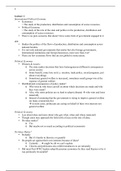Class notes
Lecture notes International Political Economy (6442HIPE)
- Course
- Institution
These are my complete notes from the lectures of the course International Political Economy given in the second year of IRO. If there is anything said about the exam, this is about the exam in December 2020.
[Show more]



